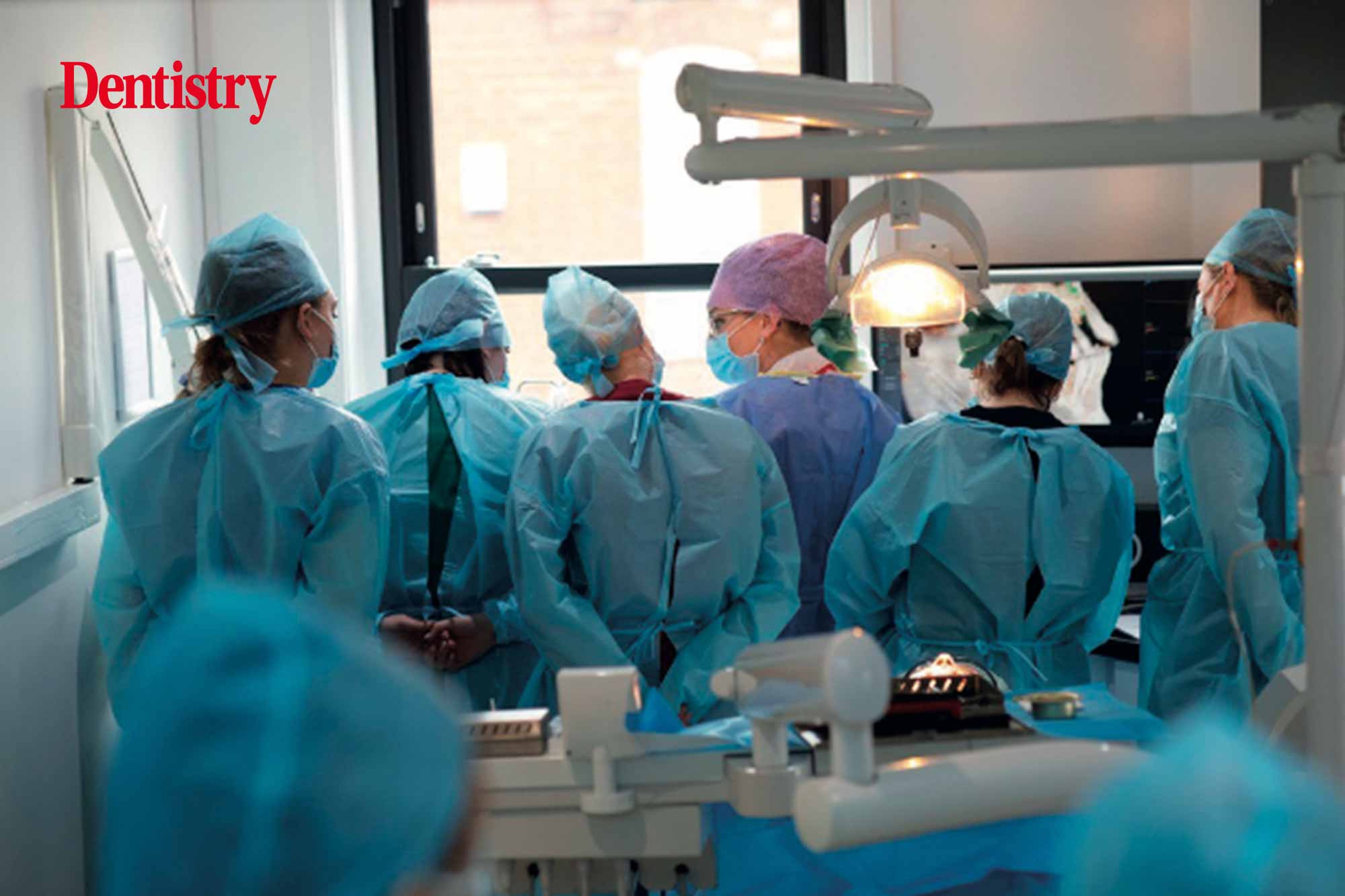
Avik Dandapat introduces the implant certification and MSc in dental implants that aims to offer delegates an eclectic view of implant dentistry.
Do you recall your first crown preparation at university? The nervous feeling of looking down at a phantom head and wondering how on earth were you supposed to trim this plastic tooth down and get the angles quite right.
It all felt quite obscure at the time. Now it’s second nature.
Placing your first dental implant is not so different. Currently the demand for introductory implant training appears to have dropped, compared to courses on composite bonding or quick orthodontics.
I believe the reason for this trend is the level of investment in terms of both time and money, as well as the perceived difficulty in carrying out the procedure itself.
Our perception of implant dentistry is influenced by ‘the good and great’ on social media showing their complex full arch surgeries and complex grafting cases.
Therefore, recent graduates feel intimidated by this ‘craft’ perceiving it as simply out of reach: too expensive, no guaranteed returns, no clear training pathway, too litigious and risky.
Sadly the ‘golden standard’ pathway, FGDP diploma course, is no more. This makes the road to becoming an implant surgeon even more unclear.
My journey into implant dentistry
It is a fine balance that must be struck when learning this new skill, between theoretical knowledge and practical experience.
Is more experience equal to better experience? Is an MSc going to teach you to place?
We are often asked, should students be going abroad to place as many implants as possible, largely in third world countries, with little ethical consideration for their long-term wellbeing.
It is my firm belief the latter is not necessary and questions the very ethics of surgery and our mission to care for our patients. More is not necessarily better.
I started my implant training in 2003. I was put in a room full of experienced dentists who had been placing implants for many years.
Here, I was one of the few complete novices.
With determination, I placed my first implant in that year with a peer mentor. And, like they all say, the rest is history.
I have now placed in excess of 5,000 implants, having gained the diploma in implant dentistry, advanced certificate and lastly, the master’s degree in implant dentistry at the University of Leeds in 2007.
What’s involved?
After running advanced implant courses for years, I have decided to put together, what I feel, is a balanced course for beginners.
I will teach you to place implants. I’ll also give you the support and backup you will need to confidently place and restore simple implant cases.
I am hoping to strike the balance between practical learning, research appraisal and academic theory. There’s an option to concurrently achieve a masters degree from Spain.
The course will be in small groups of ten dentists only, allowing for a personalised experience. Students will be required to complete five clinical cases and present them to a mentor, with a patient- focused approach at the centre of the consent process.
Once this has been approved, they will carry out the case either in their own practice, or by attending one of the four centres across the UK.
Students will be encouraged to start looking for potential cases and gathering patient data from the first unit of the implant course. The course runs for a total of 16 days, over eight units with a live surgical observation case each Friday of the course.
Aiming to instil the confidence and understanding of the treatment process, ethically present treatment plans, working in the best interests of the patient in a safe and regulated environment.
An eclectic view of implant dentistry
Once the course is complete each delegate should be competent in arriving at a diagnosis, be aware of the risk factors in implant dentistry and versed in the medical aspects relating to implant surgery.
I would also expect students to be able to discuss with confidence these risks and benefits to their patients, keep adequate records, ensure they arrive at valid consent and confidently execute implant cases.
Alongside the implant certification our students have a great opportunity to enrol on a year-long master’s degree programme at the University Rey Juan Carlos in Madrid. This was under the guidance of Dr David Madruga.
He has been teaching this course for many years and was intimately involved with the former FGDP diploma course.
Part of the MSc programme will involve a week- long residency in Madrid, which has a world-class setup for implant dentistry.
Free delegate pack
Students who opt out of the MSc programme will still have the option to attend the residency in Madrid. This is because it is incorporated into the certification course.
I believe that it is important for students to have an eclectic view of implant dentistry. All while seeing a variety of approaches to implant treatments.
We are fortunate to have some very well reputed dentists lecturing on the course including Dr David Madruga (London tutor), Dr Anoup Nandra (West Midlands tutor), Dr Pav Khaira (London tutor), Dr Ania Nohawica (Scotland and London tutor).
At the time of writing, the September 2022 intake is almost fully booked.
However, feel free to get in touch for a delegate pack and application form for the last few spaces.
For more information on the course, email [email protected], Whatsapp 07957 380198 or visit dentalimplantcentre.com.
The first module starts on the 30 September. There is also a free taster day for those delegates wanting to learn more about the course. This is limited to five spaces on a first come first serve basis only.
Payment for the course can be made over 12 months at £792.00 per month. Starting date for initial registration is 30 September and 1 October 2022.
The first day is also a taster for delegates who are unsure they wish to join free of charge.


